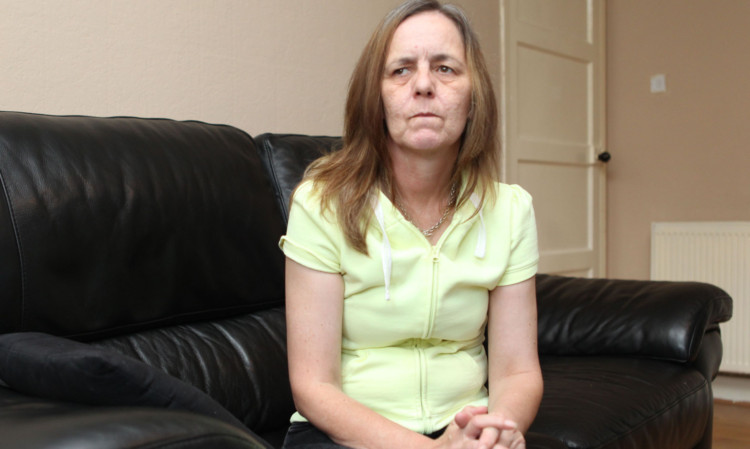
A mother whose daughter died after an ambulance was delayed has accused the service of failing to learn lessons 10 years on from the tragedy.
Margaret Aitken, of Glasgow, said her blood boils every time she reads about patients who have died due to mercy crew delays. She is calling for response target times to be made legally-binding with strict penalties imposed when services fail to meet them.
At present ambulances are required to attend 75% of life-threatening 999 calls within eight minutes and serious but non-life threatening calls within 19 minutes. But while some improvements have been made they have struggled to achieve some targets at times.
Margaret said: “I’ve read about numerous cases since Nikki died that have brought it all back to me. These kinds of incidents aren’t good enough. These are people’s lives they are dealing with. Ambulance service response times are just guidelines. They need to be legally binding with senior management’s jobs on the line if they consistently fail to meet them.”
Nikki, 15, suffered an epileptic seizure at the family’s home in Glasgow in November 2003. Margaret maintains a 33-minute delay in sending an ambulance contributed to her death. The family’s grief was compounded by the fact that three ambulances were sitting nearby at Ibrox stadium.
She took the Scottish Ambulance Service to court and was awarded a five figure sum in 2011 after an eight-year legal battle. However, a decade on from her daughter’s death, she said delays and life-threatening mistakes still happen all too often.
She said: “I find it difficult to read about paramedics that didn’t attend emergencies because they were on their lunch break. A recent misconduct case involved a woman who went to a pharmacy while on a call to take a suicidal patient to hospital. She shouldn’t have taken the call if she felt unwell.”
Margaret said the legal case she took against the SAS was painful but she has taken comfort from the fact it set a legal precedent. Lawyers for the SAS argued the service had no duty of care between receiving the 999 call from Margaret’s son Ross and the ambulance arriving. However, at the Court of Session Lord Mackay ruled the SAS had a duty of care and the staff member who took the call would be negligent if he failed to exercise the skill and care expected of him.
Following the ruling, the SAS paid Margaret a five figure sum in an out-of-court settlement.
Lawyer Cameron Fyfe, who represented Margaret, said: “The judgement was important because it allows people to sue the SAS if they consider the service was negligent in failing to arrive promptly. Presumably the judgment will be an incentive to ambulance workers to arrive as promptly as possible to avoid any possibility of a claim against them.”
Margaret thinks about her daughter’s death every day and feels her loss more strongly on milestones such as her birthday. The family, including Nikki’s brothers, Ryan, 23, Ross, 21, and sister, Roxanne, 19, make sure there is something of Nikki’s in every room of the house to remind them of her.
Margaret said: “People say I should be moving on with my life but I’m stuck. It’s worse because I know Nikki could have been saved. I constantly relive the fact she should still be here. My family will never get over that. It’s torture.”
A spokesman for the SAS said the service continuously strives to quickly identify and learn from adverse events. He added that in recent years investment in staff and training, along with new equipment and technology, have achieved significant improvements.
He also said the service is meeting its target for life threatening calls and crews get to incidents faster than ever before.

Enjoy the convenience of having The Sunday Post delivered as a digital ePaper straight to your smartphone, tablet or computer.
Subscribe for only £5.49 a month and enjoy all the benefits of the printed paper as a digital replica.
Subscribe